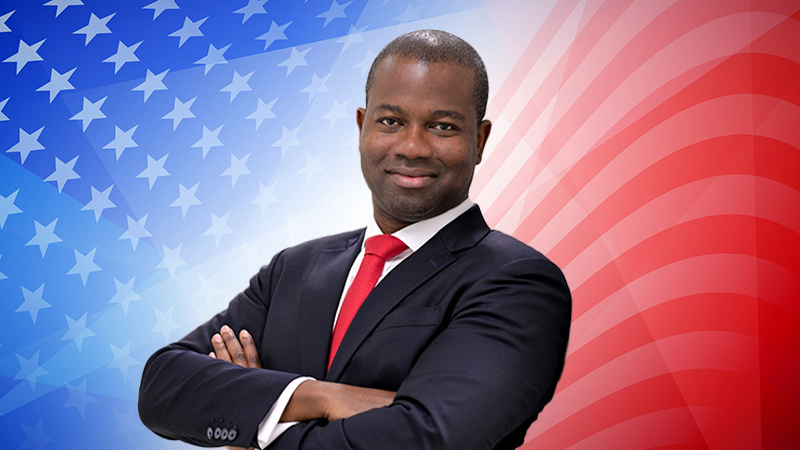By Justin Onuekwusi, chief investment officer at St. James’s Place
Investors are on edge, grappling with uncertainty on multiple fronts as the US election fast approaches. With the outcome seemingly hanging in the balance, the potential impositions of blanket tariffs from a Trump presidency on all trade is concerning many. Such a move could spell trouble for the global economy, bringing potential implications for long-term geopolitical stability and fiscal discipline.
One significant tail risk we are monitoring is the impact of the US fiscal balance sheet. At around 4%, treasury yields are not overly concerning, but they reflect some uncertainty. While we do not anticipate a UK-like event in the US — a major bond sell-off akin to the Truss mini-budget moment — continued volatility in the bond markets leading up to and potentially beyond the election is likely.
While it is notoriously difficult to predict election results, and therefore subsequent policy of future administrations, the possibility of a Trump presidency focused on additional fiscal expansion and deregulation could push inflation higher, raising the yield of long maturity bonds as investors price greater long-run uncertainty in US bond markets. This ripple effect could inevitably be felt across the broader global bond market, as the US remains the benchmark for global fixed income.
See also: Morningstar: What does the US election mean for investing in China?
The potential imposition of blanket tariffs by Trump is especially concerning. While this could give a short-term inflationary boost to industries such as traditional energy, financials and defence, it could be disastrous for global growth over the long term. Take tariffs on China as an example. These have already led to a decline in US-China trade over the past few years and increased trade deficits with other countries. This rebalancing effect of blanket tariffs on US trade partners would complicate global trade dynamics.
The US economy has been sending mixed signals in recent months. The challenge lies in the core components of inflation, which seem inconsistent with the cut of over 1% the market expects from the Federal Reserve in the next 12 months. This creates a dilemma for the Fed, which must balance lowering inflation with a strong but potentially weakening labour market.
Historically, equity markets have shown more volatility during close and contentious elections. Given polling data indicates a tight race hinging on a few swing states, such uncertainty could spur heightened market volatility as investors react to polling trends and shifting political dynamics. While markets tend to calm after an election, investors should not assume smooth sailing in the immediate aftermath.
Policy changes, particularly those related to fiscal spending, taxation and regulation, could significantly impact sectors such as technology, energy and healthcare. leading to heightened market volatility as investors react to polling trends and shifting political dynamics.
Despite the noise, investors should remain steadfast: focusing on long-term fundamentals and preparing rather than predicting. Forecasting market responses to elections or economic data is fraught with risk. But discipline is needed — diversifying portfolios, managing risk and avoiding overreactions to short-term market moves.
While the election presents both short-term risks and opportunities, in line with past elections it is unlikely to have an impact on the medium-term expected returns of asset classes, but will stir potential short-term challenges.
While global bond yield curves may steepen globally pushing up longer term interest expectations, bonds remain an attractive asset class to hold with fears remaining around economic growth. We may also see volatility in equity markets as traders react to each other post-election, focus should be on the medium-to-long-term fundamentals — such as earnings and the discount rate — that will drive equity returns and ultimately client outcomes.
See also: Weekly Outlook: US election, UK and US interest rate decisions
Currency markets are also an area that may see volatility, especially if election results are delayed in swing states. However, we see little immediate threat to the US dollar’s status as the world’s reserve currency. Despite speculation, neither the euro nor renminbi are poised to replace the dollar.
Investors therefore should assess any risks within their portfolio and ensure they are resilient to adverse outcomes, while remaining flexible to seize opportunities that may arise during periods of extreme market stress.
Whether we face a Trump 2.0 presidency with potentially higher inflation or a Harris-led government which would likely be more of a continuation of the current administration, it is important to ensure that portfolios are diversified and robust.
By maintaining a disciplined, medium-term view and avoiding being swayed by the noise, investors can navigate the election with confidence, focusing on fundamentals rather than short-term volatility.
This article was first seen in our sister publication, PA Adviser











